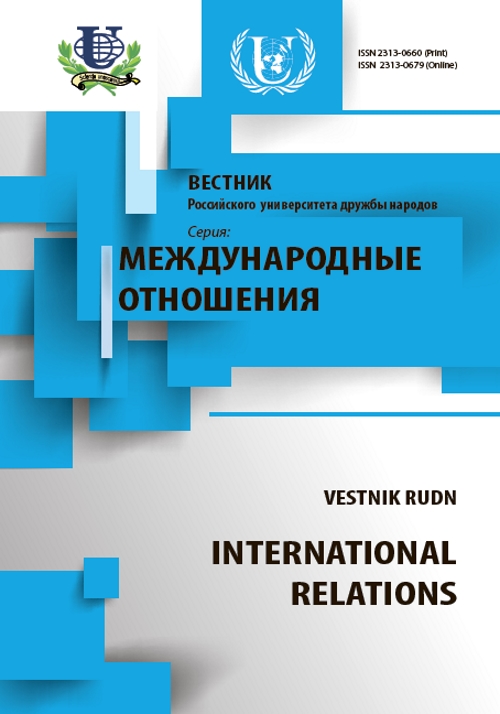Diaspora Diplomacy of Russia in Latin America: Historical Experience and Prospects
- Authors: Moseikina M.N.1
-
Affiliations:
- Peoples’ Friendship University of Russia
- Issue: Vol 15, No 4 (2015): Latin America in the 21st Century: Challenges and Prospects
- Pages: 66-75
- Section: ARTICLES
- URL: https://journals.rudn.ru/international-relations/article/view/10497
- ID: 10497
Cite item
Full Text
Abstract
This article analyzes the new direction of foreign policy concept in modern Russia - its diaspora diplomacy focused on the use of resources of foreign nationals in the interest of the country of origin. As part of this new direction for the Russian foreign policy, the Russian diaspora, and if you take more widely - the Russian world, is viewed as a partner in expanding and strengthening the space of the Russian language and culture, promoting the interests of Russia as a country-metropolis abroad. The author shows that Russia has recognized this foreign part of the world as its compatriots associated with Russian historical, ethnic, cultural, linguistic and spiritual ties. A considerable part of the Russian world (almost 130 thousand people) currently resides in the territory of Latin America and the Caribbean states, with which over the past decade there has been significantly intensified the political, trade-economic, humanitarian and cultural cooperation. The aim of the article is to review the historical experience of the diaspora diplomacy, the subject of which in the twentieth century was the Russian diaspora in Latin America. In this regard, the task is to reveal the formation of the Russian diaspora in the continent throughout the twentieth century in the context of the history of emigration, connecting it with such important events of the Russian and world history as the Russian revolution of 1917, the Civil War, World War II and the collapse of the Soviet Union. The article provides the role of the Russian world of Latin American countries in establishing the space of a constructive dialogue between civilizations and numerous examples of peaceful integration of cultures of different ethnic groups. The author concludes that by promoting the cultural, linguistic and historical heritage as well as its own scientific, economic and human potential, the Russian diaspora in Latin America acts as a kind of agent-based resource for Russia as the country-metropolis. In this regard, it is evident that the development of cooperation of Russia with compatriots, including the practice of “network diplomacy” of the Russian-speaking diaspora, will contribute to the Russian presence in the humanitarian, cultural and information field in the region and will provide additional opportunities for strengthening Russia's position in the Ibero-American world on the whole.
About the authors
Marina Nikolaevna Moseikina
Peoples’ Friendship University of Russia
Email: marina_moseikina@mail.ru
Department of Russian History
References
Supplementary files










